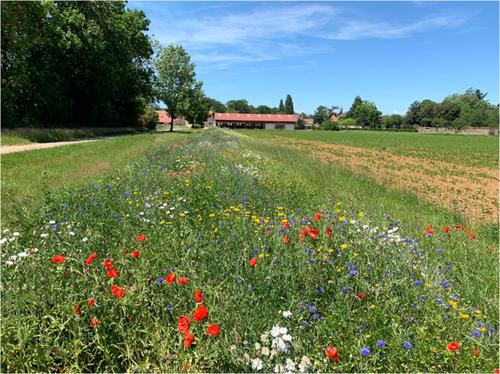Agronomy for Sustainable Development ( IF 6.4 ) Pub Date : 2022-06-09 , DOI: 10.1007/s13593-022-00786-4 Chantal Gascuel-Odoux 1 , Françoise Lescourret 2 , Benoit Dedieu 3 , Cécile Detang-Dessendre 4 , Philippe Faverdin 5 , Laurent Hazard 6 , Isabelle Litrico-Chiarelli 7 , Sandrine Petit 8 , Lionel Roques 9 , Xavier Reboud 8 , Michele Tixier-Boichard 10 , Hugo de Vries 11 , Thierry Caquet 12

|
A profound transformation of agricultural production methods has become unavoidable due to the increase in the world’s population, and environmental and climatic challenges. Agroecology is now recognized as a challenging model for agricultural systems, promoting their diversification and adaptation to environmental and socio-economic contexts, with consequences for the entire agri-food system and the development of rural and urban areas. Through a prospective exercise performed at a large interdisciplinary institute, INRAE, a research agenda for agroecology was built that filled a gap through its ambition and interdisciplinarity. It concerned six topics. For genetics, there is a need to study genetic aspects of complex systems (e.g., mixtures of genotypes) and to develop breeding methods for them. For landscapes, challenges lie in effects of heterogeneity at multiple scales, in multifunctionality and in the design of agroecological landscapes. Agricultural equipment and digital technologies show high potential for monitoring dynamics of agroecosystems. For modeling, challenges include approaches to complexity, consideration of spatial and temporal dimensions and representation of the cascade from cropping practices to ecosystem services. The agroecological transition of farms calls for modeling and observational approaches as well as for creating new design methods. Integration of agroecology into food systems raises the issues of product specificity, consumer behavior and organization of markets, standards and public policies. In addition, transversal priorities were identified: (i) generating sets of biological data, through research and participatory mechanisms, that are appropriate for designing agroecological systems and (ii) collecting and using coherent sets of data to enable assessment of vulnerability, resilience and risk in order to evaluate the performance of agroecological systems and to contribute to scaling up. The main lessons learned from this collective exercise can be useful for the entire scientific community engaged in research into agroecology.
中文翻译:

欧洲国家扩大生态农业的研究议程
由于世界人口的增加以及环境和气候的挑战,农业生产方式的深刻转变已成为不可避免。生态农业现在被认为是农业系统的一个具有挑战性的模式,促进其多样化和适应环境和社会经济环境,对整个农业食品系统和农村和城市地区的发展产生影响。通过在大型跨学科研究所 INRAE 进行的一项前瞻性研究,建立了农业生态学研究议程,通过其雄心壮志和跨学科性填补了空白。它涉及六个主题。对于遗传学,需要研究复杂系统的遗传方面(例如,基因型的混合物)并为它们开发育种方法。对于风景,挑战在于多尺度、多功能性和农业生态景观设计的异质性影响。农业设备和数字技术显示出监测农业生态系统动态的巨大潜力。对于建模,挑战包括处理复杂性的方法、考虑空间和时间维度以及从种植实践到生态系统服务的级联表示。农场的农业生态转型需要建模和观察方法以及创建新的设计方法。将生态农业纳入粮食系统会引发产品特性、消费者行为和市场组织、标准和公共政策等问题。此外,确定了横向优先事项:(i)生成生物数据集,通过适用于设计农业生态系统的研究和参与机制,以及 (ii) 收集和使用连贯的数据集,以评估脆弱性、复原力和风险,以评估生态农业系统的绩效并促进扩大规模。从这次集体活动中汲取的主要经验教训可能对整个从事农业生态学研究的科学界有用。











































 京公网安备 11010802027423号
京公网安备 11010802027423号